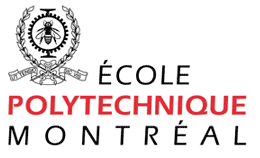The search for very deep deposits is becoming more and more important in mineral exploration. Due to the absence of surface indicators and the prohibitive cost of deep drilling, indirect methods, such as geophysical surveys, are essential in such context. For deep targets (300 to 2000m), reflection seismic is the geophysical technique having the best compromise between resolution and depth of investigation. Seismic methods remain, however, underutilized in mineral exploration. The main reason is the poor performance of traditional seismic imagery algorithms for metamorphosed and highly folded geological environments. Modern processing algorithms, namely Reverse Time Migration (RTM) and Full Waveform Inversion (FWI), can theoretically image any kinds of structures, regardless of their complexity, dips or material variability. This capability comes from adopting the most complete physical model of wave propagation, or the full-wave equation. To date, RTM and FWI have not been fully developed or tested for mining seismic applications.
We are looking for PhD or master’s candidates to work on the development of FWI and RTM algorithms optimized for mining seismic. Applying full waveform processing in the context of mineral exploration remains a major scientific and technical challenge. Indeed, land seismic data are complex and contain several seismic phases. This complexity requires a complete physical models of wave propagation. One of the main objectives of the research projects will be the development of the viscoelastic formulation of FWI and RTM, which is better adapted to land data than the usual acoustic approximation. Such a formulation has the added advantage of allowing the estimation of the geomechanical properties of rocks. However, convergence of viscoelastic FWI remains problematic. Another principal objective of the research projects will be to regularize FWI in the context of mineral exploration. This will be achieved by the integration of drilling information and petrophysical relationships as constrains to the inversion. FWI will generate high resolution models of the geomechanical properties or rocks and RTM will provide better resolved seismic images. A final objective of the research projects is to fully integrates those high-resolution models within an interpretation workflow adapted to the context of mineral exploration.

 Continue with Facebook
Continue with Facebook



